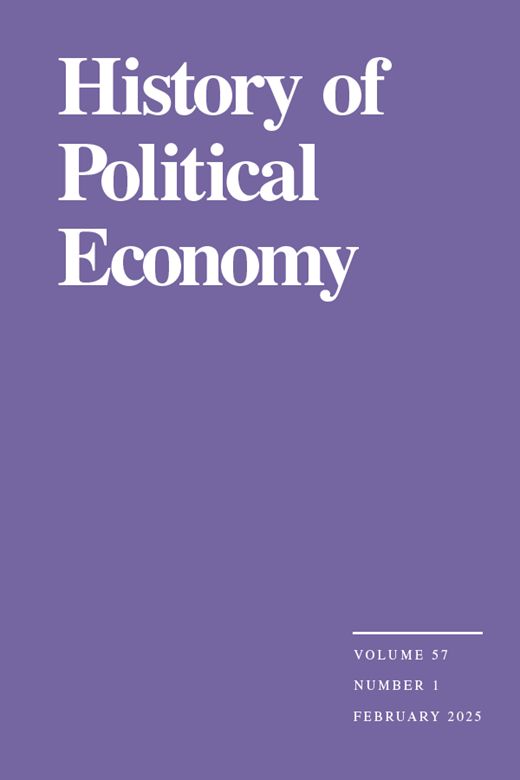
Article: No More Than Exchanging Tools: Jacob Marschak and the Early Years of Cross-Disciplinary Interactions Between Economics and the Behavioral Sciences Movement, 1950–1956, by Catherine Herfeld & Edoardo Peruzzi
buff.ly/WiJMiFG
@juliengradoz.bsky.social
Assistant professor of economics at Université Jean Moulin Lyon 3 (France). History of Economics. Product quality. Contested markets. https://sites.google.com/site/gradozjulien

Article: No More Than Exchanging Tools: Jacob Marschak and the Early Years of Cross-Disciplinary Interactions Between Economics and the Behavioral Sciences Movement, 1950–1956, by Catherine Herfeld & Edoardo Peruzzi
buff.ly/WiJMiFG
Congrats Erwin! I’m really happy for you — soon you'll hit the 10,000 mark! 🚀🚀🚀
17.07.2025 08:51 — 👍 3 🔁 0 💬 0 📌 0Merci beaucoup Jérôme !! :)
30.06.2025 14:28 — 👍 0 🔁 0 💬 0 📌 0Merci beaucoup Morten !!! :)
30.06.2025 10:31 — 👍 0 🔁 0 💬 0 📌 0Merci beaucoup j'espère qu'on se verra bientôt ! :)
30.06.2025 07:52 — 👍 1 🔁 0 💬 0 📌 0Ainsi que mon coauteur @erwindekker.bsky.social pour nos nombreuses années de collaboration !
30.06.2025 06:40 — 👍 1 🔁 0 💬 0 📌 0Je remercie en particulier mes deux directeurs de thèse, mes collègues du @clerseumr8019.bsky.social, les membres du réseau @rehpere.bsky.social et les membres du @hopecenter.bsky.social
30.06.2025 06:33 — 👍 4 🔁 1 💬 1 📌 0J'ai l'immense plaisir d'annoncer que je rejoins l’Université Jean Moulin Lyon 3 comme maître de conférences à la rentrée !
Hâte de débuter cette nouvelle étape et de découvrir un nouvel environnement académique.
Merci à toutes celles et ceux qui m’ont soutenu dans ce parcours 🎉
Félicitations !!!!!!!!!!! :)
17.06.2025 19:44 — 👍 1 🔁 0 💬 1 📌 0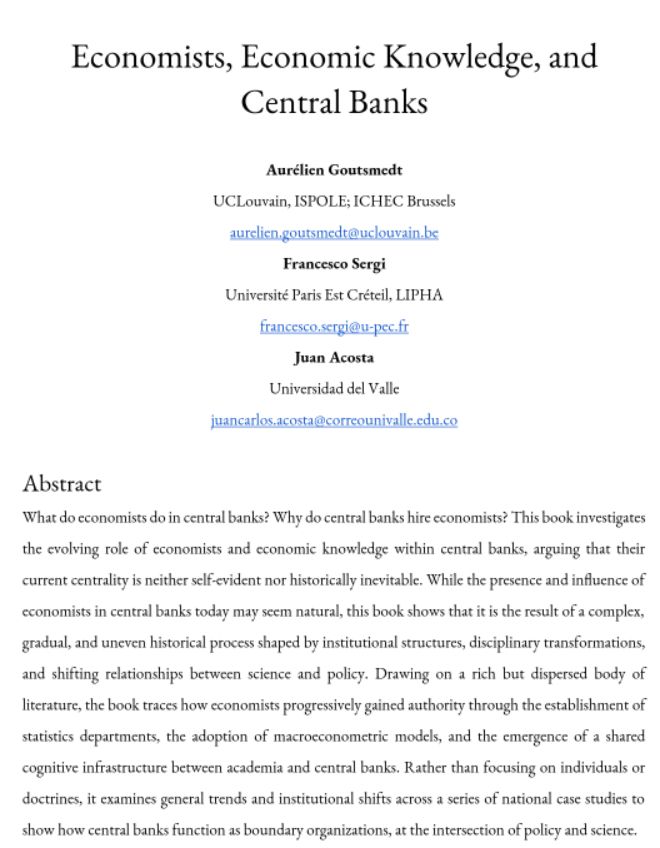
Economists, Economic Knowledge, and Central Banks Aurélien Goutsmedt UCLouvain, ISPOLE; ICHEC Brussels Francesco Sergi Université Paris Est Créteil, LIPHA Juan Acosta Universidad del Valle Abstract What do economists do in central banks? Why do central banks hire economists? This book investigates the evolving role of economists and economic knowledge within central banks, arguing that their current centrality is neither self-evident nor historically inevitable. While the presence and influence of economists in central banks today may seem natural, this book shows that it is the result of a complex, gradual, and uneven historical process shaped by institutional structures, disciplinary transformations, and shifting relationships between science and policy. Drawing on a rich but dispersed body of literature, the book traces how economists progressively gained authority through the establishment of statistics departments, the adoption of macroeconometric models, and the emergence of a shared cognitive infrastructure between academia and central banks. Rather than focusing on individuals or doctrines, it examines general trends and institutional shifts across a series of national case studies to show how central banks function as boundary organizations, at the intersection of policy and science
What do economists do in central banks? How did they come to play such a central role?
We're excited to share the first draft of a Cambridge University Press Elements book project on how economists became key figures in central banking over the twentieth century.
▶️ osf.io/preprints/so...
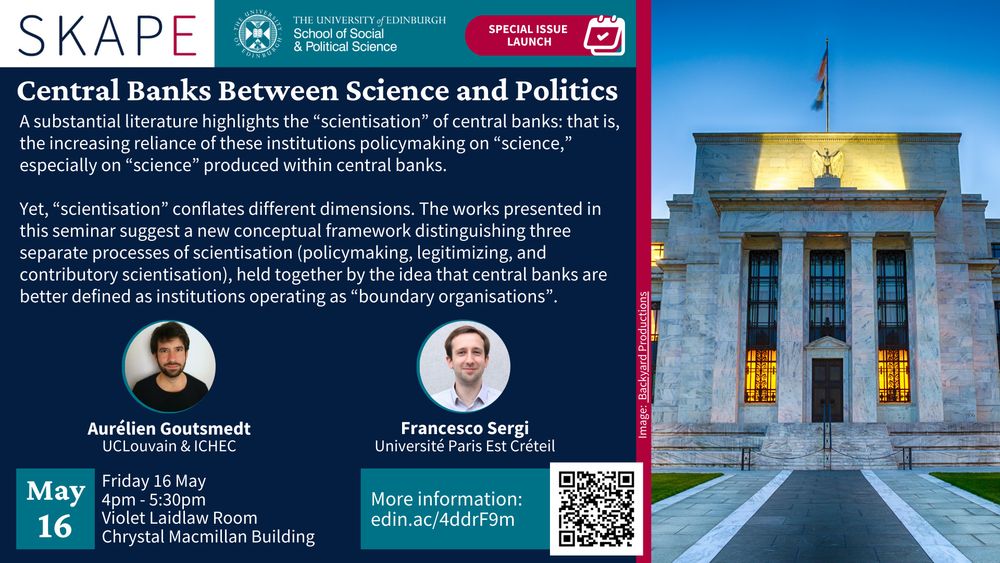
For those in the Edinburgh area, Francesco Sergi and I will present Friday our special section on the "Scientization of Central Banks", soon to be published in @finandsoc.bsky.social
Thanks to Nathan Coombs and the SKAPE center for inviting us.
More info ➡️ www.skape.ed.ac.uk/events/

Article: “Economics Is Not a Man's Field”: CSWEP and the First Gender Reckoning in Economics, 1971–1991, by Cléo Chassonnery-Zaïgouche, Beatrice Cherrier & John D. Singleton
doi.org/10.1215/0018...
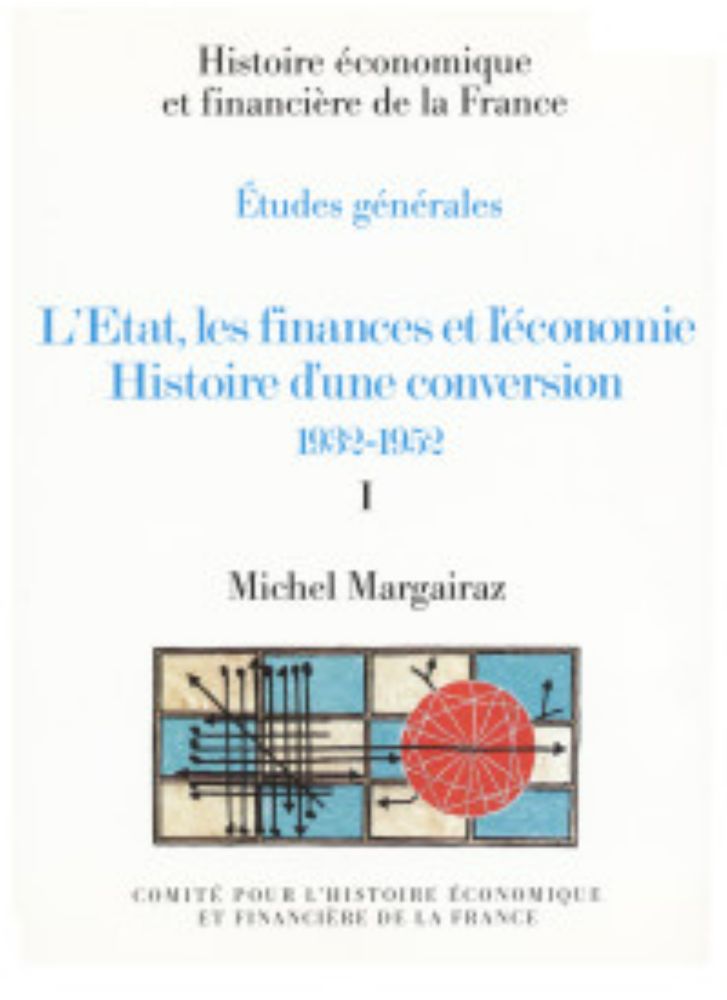
Dans ce livre de Margairaz, il y a une section intitulée Sauvy contre Sauvy, peut-être ça ? books.openedition.org/igpde/2307?l...
29.03.2025 12:01 — 👍 0 🔁 0 💬 1 📌 0C'est que je doute même de l'existence du chapitre ahaha
29.03.2025 11:50 — 👍 0 🔁 0 💬 1 📌 0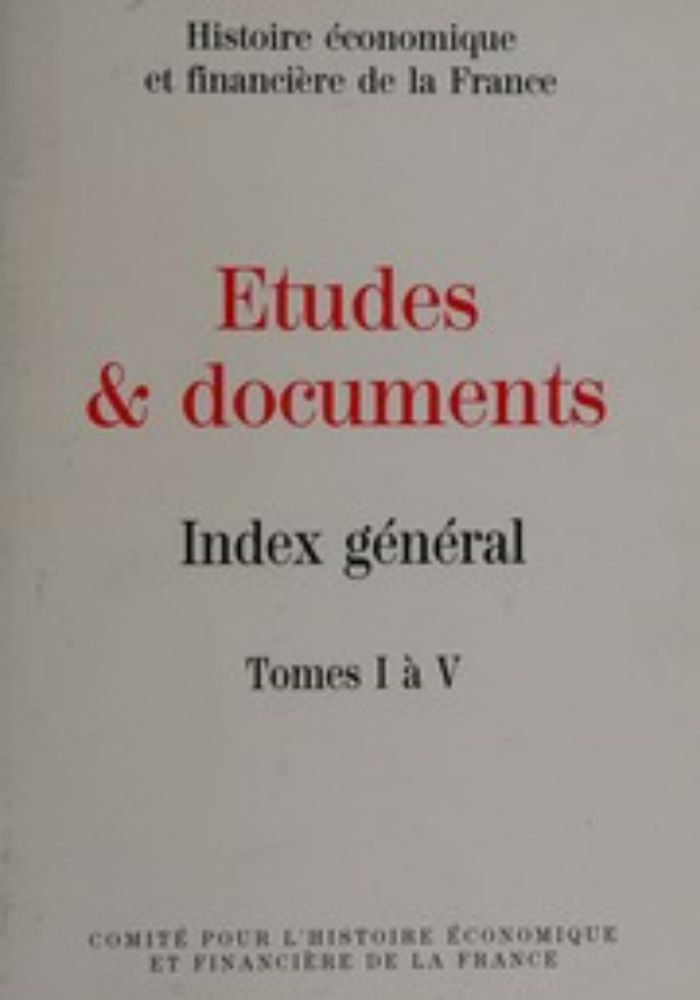
Aucune trace du doc dans l'index général de la collection ahaha archive.org/details/etud...
29.03.2025 11:46 — 👍 1 🔁 0 💬 1 📌 0Oh la belle tasse ! ;)
24.03.2025 11:02 — 👍 2 🔁 0 💬 1 📌 0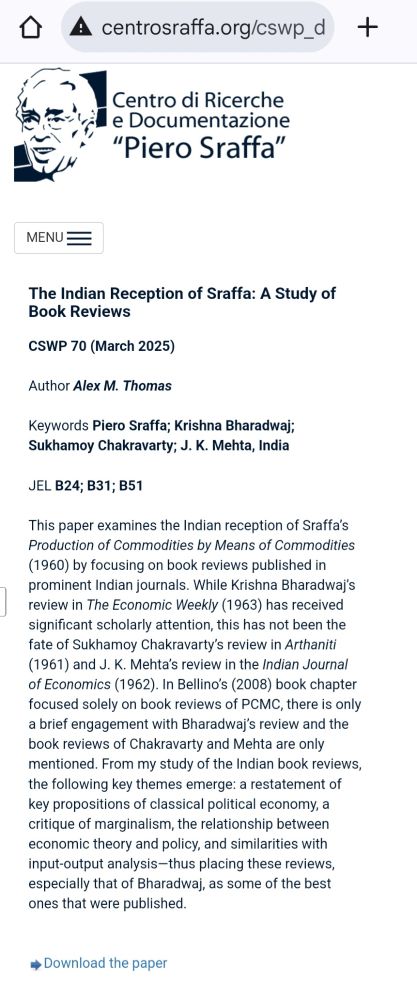
My paper on the Indian Reception to Piero Sraffa where I focus on book reviews by 3 Indian economists is now published in the Centro Sraffa working paper series.
www.centrosraffa.org/cswp_details...
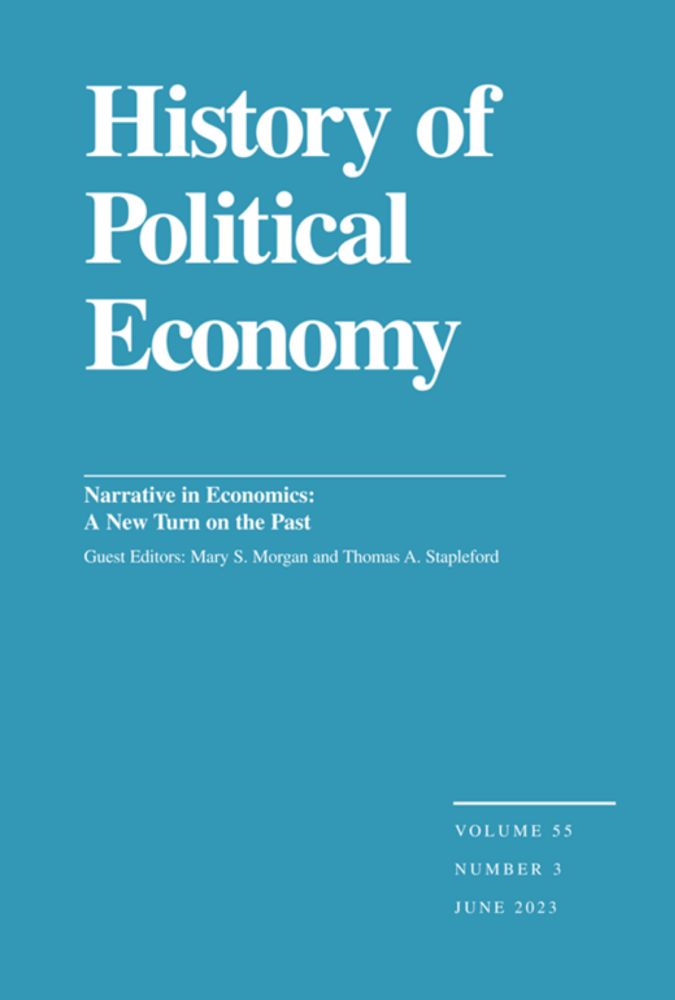
👉Check out the paper of our PI @cherfeld.bsky.social and her PhD student Alexandra Quack on the role of narratives in transferring rational choice models into political science, published in 2023 in the journal History of Political Economy.
read.dukeupress.edu/hope/article...
Impatient de l'écouter ! :)
27.02.2025 16:27 — 👍 2 🔁 0 💬 0 📌 0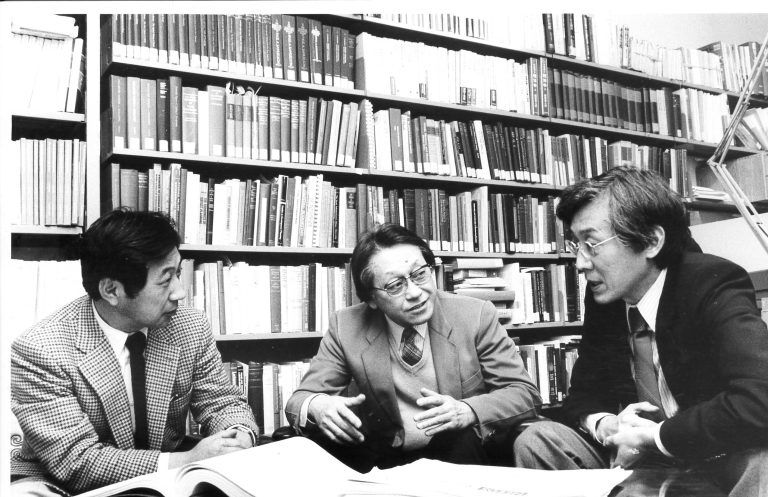
Who can name the economist on the right? Answer in the comments, as well as a link announcing the opening of his papers for research at the @rubensteinlib part of Economists' Paper Archive. A special thanks to @soroushm669531 for his work on this archive.
19.02.2025 20:46 — 👍 7 🔁 1 💬 1 📌 0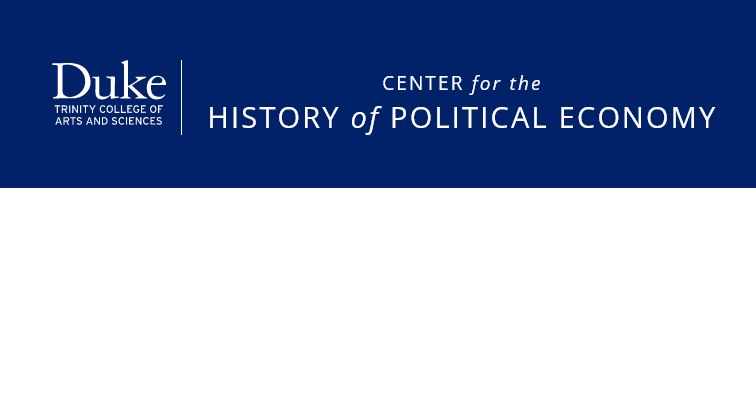
WP: A Note on the Origins of The General Theory of Second Best: The Accounts of Kelvin John Lancaster, Richard George Lipsey and Harry Gordon Johnson, by Julien Gradoz
https://buff.ly/3PQ0mZt
C'est intéressant, tu as pas mal de travaux consacrés à la co-construction de la qualité, avec des études de cas sur les services chez Callon ou chez Beckert et Musselin :)
24.01.2025 18:58 — 👍 1 🔁 0 💬 0 📌 0
WP: Promoting Statistical Methods to Engineers and Economists: Walter Andrew Shewhart and Statistical Quality Control, by Julien Gradoz
https://buff.ly/3PJMSyj
Karpik, voulant ajouter les biens singuliers à ces typologies, a tendance à lui-même agglomérer les objets manufacturés et les services derrière l'étiquette englobante de "biens singuliers". Bien sûr, ce n'est qu'une hypothèse :)
24.01.2025 15:12 — 👍 0 🔁 0 💬 1 📌 0Or, ces distinctions, telles que mobilisées dans les modèles, ont tendance à agglomérer les objets manufacturés et les services. Par exemple, les modèles d'asymétries d'information sont suffisamment généraux pour s'appliquer à la fois à qualité des voitures ou à la productivité des travailleurs.
24.01.2025 15:12 — 👍 1 🔁 0 💬 1 📌 0Comme ça, j'aurais envie de dire que Karpik se positionne par rapport à la typologie des biens en usage par ce qu'il considère être l'économie néoclassique, constituée des "biens homogènes" et "biens différenciés", ou des "biens de recherche" et "biens d'expérience".
24.01.2025 15:12 — 👍 1 🔁 0 💬 1 📌 0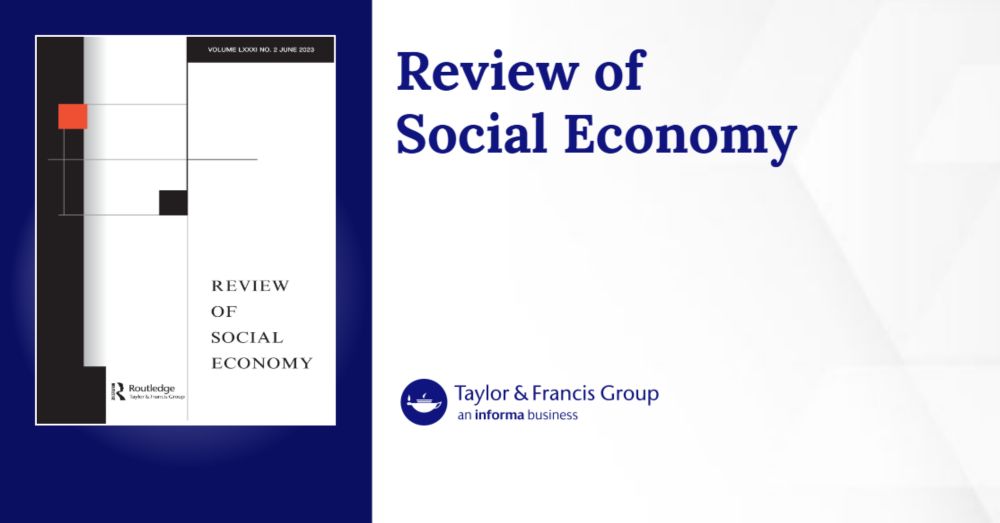
C'est une très bonne question. Dans l'article qu'on vient de publier avec Fabien Eloire sur l'économie des singularités (www.tandfonline.com/doi/full/10....) on n'aborde pas du tout ce sujet, et Karpik non plus d'autant que je me souvienne.
24.01.2025 15:12 — 👍 1 🔁 0 💬 1 📌 0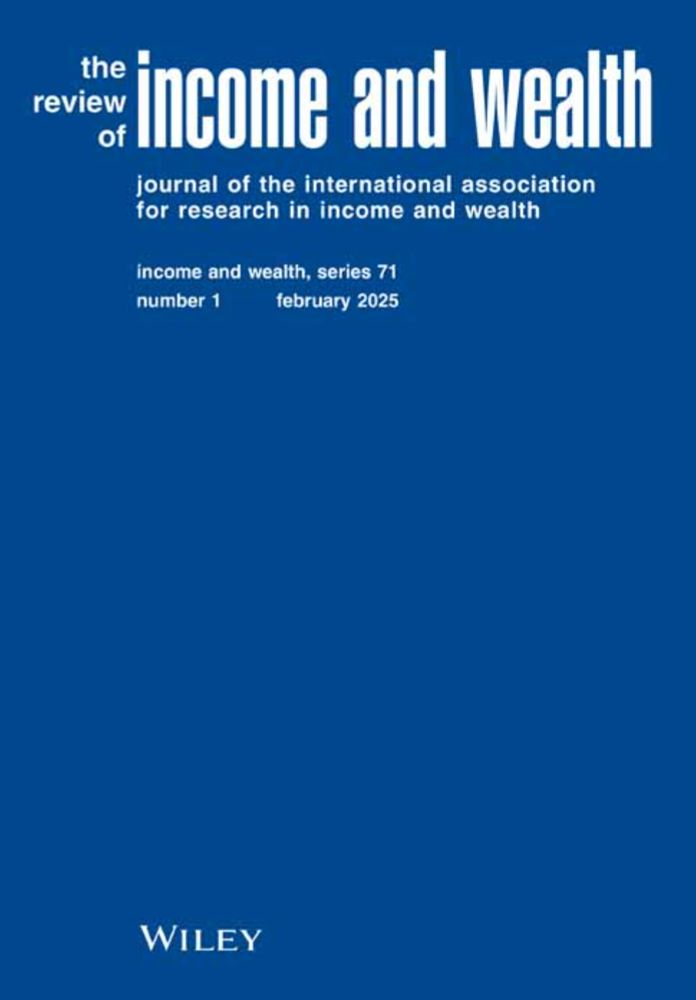
And also the answer by Jean Gadrey : doi.org/10.1111/j.14...
24.01.2025 02:38 — 👍 2 🔁 0 💬 0 📌 0